
WHY DO SO many gay boys love Doctor Who?
That's the million dollar question. On the face of it, the series - which aired between 1963 and 1989 - couldn't have been less sexy, less like a Hollywood melodrama or musical - but don't be fooled. Packed with BBC luvvies, on screen and behind-the-scenes, Doctor Who was riddled with gay subtext. And that's before we start talking about how all Cybermen are, well, men, the Doctor's asexuality, or '80s showrunner John Nathan-Turner...

Marco Polo (1964)
< Susan finds lesbian love with Ping-Cho sharing a tent on a road trip, then risks her life to say goodbye to her eastern promise! Ah, young lellibans!

Galaxy 4 (1965)
> More lesbians! I don't know why this odd little show from 1965 is so unloved by fans: a ship full of lesbians (they are!), some cute robots, and a hideously ugly monster who turns out to be the goodie (how gay is that?), all trapped on a doomed planet gasping its last. The BBC's official episode guide describes the lesbians thus: a "group of mindless cloned soldiers terrorised by a warlike matriarch, Maaga." Said Maaga is a total cunt. She's awesome.
< It's said that William Hartnell refused to appear in scenes with gay actor Max Adrian, but, funnily enough, this is also said to be a myth. See what we did there?

The Celestial Toymaker (1966)
> "I'm going to see if there's an invisible barrier round his backside," Steven says (ooh, I say!) of obnoxious schoolboy Cyril in this surreal gem about a grown man obsessed with toys and games.
< A lovely Hartnell fluff. When asked where Steven is, the Doctor replies, "she's gone off with a gentleman called Johnny Ringo." Well, I never!
> The second Doctor and Jamie can barely keep their hands off of each other most of the time. The two actors were fond of slipping in exchanges like the following - "Look at the size of that thing, Doctor!" "Yes, Jamie, that is a big one" - at least once per story. Pair of tarts.
> The second Doctor and Jamie can barely keep their hands off of each other most of the time. The two actors were fond of slipping in exchanges like the following - "Look at the size of that thing, Doctor!" "Yes, Jamie, that is a big one" - at least once per story. Pair of tarts.
The Tomb of the Cybermen (1967)
Roy Stewart's (Toberman) stereotypical casting might be embarrassing by today's standards, but my oh my, how fine does he look in those tight trousers, wrenching open the doors to the tomb of the Cybermen? Answer: off the f**king scale.
< Aubrey Woods' Controller is heavily coded as gay. If there'd been webisodes in 1972 he'd be seen sneeking off to S&M bars. Woods would later appear as a fabulous deviant in the Blake's 7 episode Gambit, but he will forever be remembered as the candy store owner in Willy Wonka & the Chocolate Factory.
> Alpha Centauri might not be gay, but he/she is a gay icon! This lovable, hysterical alien nellie is surely as old school gay as it gets.
< Three fussy old queens run tings on Inter Minor. More explicitly still, "entertainer" Vorg speaks Polari (old British gay slang).
Invasion of the Dinosaurs (1974)
 > "He's terribly handsome." This is how one of the bad guys describes the Doctor in the 1976 novelisation by leftie writer Malcolm Hulke. It resonated when I read it as a kid (in the '90s, thanks very much!) and I wasn't the only one. The sexuality of the bad guy - Whitaker - is implied with lines like, "Whitaker's well-manicured finger", "Whitaker thought it was such a pity about [Butler's] awful scar", and "Whitaker pouted." When eventually I viewed the original TV version, I was disappointed none of this was on screen.
> "He's terribly handsome." This is how one of the bad guys describes the Doctor in the 1976 novelisation by leftie writer Malcolm Hulke. It resonated when I read it as a kid (in the '90s, thanks very much!) and I wasn't the only one. The sexuality of the bad guy - Whitaker - is implied with lines like, "Whitaker's well-manicured finger", "Whitaker thought it was such a pity about [Butler's] awful scar", and "Whitaker pouted." When eventually I viewed the original TV version, I was disappointed none of this was on screen.< "The thought of Miss Winters in handcuffs gave Sarah great pleasure," Terrance Dicks writes in the story's novelisation, in another nod to our lelliban sisters.
> Camp Cybermen! Their leader loves an acerbic barb, and wanders around with her his hands on his hips. This bitch also makes sure he's got better make-up than his minions.
Masque of Mandragora (1976)
 < Giuliano and Marco are totally boyfriends. Giuliano introduces Marco as "my companion", and on the subject of the Temple of Demnos, Giuliano puts his hand on Marco's arm and says, "something is not normal, Marco... as you and I both know." Yes, gurrl!
< Giuliano and Marco are totally boyfriends. Giuliano introduces Marco as "my companion", and on the subject of the Temple of Demnos, Giuliano puts his hand on Marco's arm and says, "something is not normal, Marco... as you and I both know." Yes, gurrl!The Seeds of Doom (1976)
 > If Harrison Chase is not actually a gay, he does a damn good impression of one. A warped, deviant gay, of course, but a gay nonetheless.
> If Harrison Chase is not actually a gay, he does a damn good impression of one. A warped, deviant gay, of course, but a gay nonetheless.< Gallifrey is a world of old queens, hot young soldiers, and no women.
> The sexiest robots ever; if only real boys looked like this! Pity about the frenzied killing, but you can't have everything, right? The robotic hotness is even enough to make human Dask go on the turn: "I will release more of our brothers from bondage. We will be irresistible," he says.
The Ribos Operation (1978)
> Vivien Fay and Professor Rumford are lovers. Obviously. Sausage sandwiches, anyone? And let's not overlook Fay thinking Romana will get "a real kick" out of riding on a bicycle seat. Those crazy dykes!
< Peter Straker in silver dreads and skin tight nylon, with a spaceship full of sexy (albeit android) dreads? Oh, fuck yes, please, sign me up!
The Creature from the Pit (1979)
 > Erato, the titular Creature From The Pit, boasts a huge appendage, which the Doctor blows. Literally.
> Erato, the titular Creature From The Pit, boasts a huge appendage, which the Doctor blows. Literally.< "You're a beautiful woman, probably," the Doctor tells the Countess. In the BBC's awful 21st century interpretation of the series, he'd kiss her, to soaring Disney music. Decide for yourself which approach is more interesting.
The Leisure Hive (1980)
 > John Nathan-Turner, Doctor Who's infamous producer for the whole of the 1980s, polarised - and continues to polarise - opinion. A new biography of the man
> John Nathan-Turner, Doctor Who's infamous producer for the whole of the 1980s, polarised - and continues to polarise - opinion. A new biography of the man< Adric's big brother is sex on legs. With eyes, hair, and that expanse of smooth tan chest, it's no wonder those crazy mixed up kids from the Starliner stick to him like glue. Then he dies.
> Boy, does Camilla want Romana, and Zargo's got it bad for Adric. It's more State of Arousal, than decay, for these hyper-sexed vampires!
< It's also claimed in the The Life and Scandalous Times of John Nathan-Turner that JNT told Matthew Waterhouse to (ahem) "make his dick hard" before the scene in which he's stretched in the Master's web, to see if anyone would notice. Waterhouse denies the story, but how does he explain that prominent bulge?
> Adric was Doctor Who's first gay companion. Actor Matthew Waterhouse is (now) openly gay, and his performance is informed by that. The Doctor is far more than a father figure for Adric, and Adric dismisses fellow companions Tegan and Nyssa as "only girls". He responds to men: Aukon in State of Decay, the Monitor in Logopolis, Four To Doomsday's Monarch, and Hindle in Kinda. Like many an introverted gay boy, he's the awkward wallflower during the party in Black Orchid. It's his relationship with both Doctors that says most; he idolises the eccentric, bohemian fourth Doctor (an outsider like him). But the fifth Doctor is like that popular teacher in school, the one all the other kids loved, the one who treated you like the weird outsider. No wonder Adric wanted to leave the fifth Doctor, Tegan and Nyssa to it. Like many a gay teenager, Adric committed suicide.
< British Airways' campest camp it up. Adric? Who?
> A couple of young men drift through Amsterdam looking for somewhere to get head get their heads down. They settle on a pump house. The following conversation ensues: "Are you really going to sleep like that?" "Well, what's the matter with that?" "You're still fully dressed." "I'm not taking any chances!" "At least take your socks off!"
< An all boys' public school. Nuff said.
> This is allegedly about leprosy, but it's 1983. Let's be real. Terminus is about AIDS.
< I don't know if '80s pop star Leee John (he was in uber-camp band Imagination) is gay, but he might as well be. Who knows what went on on Captain Wrack's debauched pirate ship, where everyone was young, forever?
Vengeance on Varos (1985)
 > Blond himbo Jason Connery wanders around shirtless, whilst repellent capitalist Sil is pampered by muscled (it must be said, exclusively black) body guards. Hot muscle was unheard of in Doctor Who, and welcomed by closeted gay boys everywhere.
> Blond himbo Jason Connery wanders around shirtless, whilst repellent capitalist Sil is pampered by muscled (it must be said, exclusively black) body guards. Hot muscle was unheard of in Doctor Who, and welcomed by closeted gay boys everywhere.Revelation of the Daleks (1985)
 < Hugh Walters is deliciously simpering as Kara's camp male secretary. Mortuary attendants Takis and Lilt are clearly gay lovers (probably with a necrophilia fetish). Meanwhile, bounty hunter Orcini and his squire Bostock nurture a moving bromance. The whole story is a kinky, f**ked up mess.
< Hugh Walters is deliciously simpering as Kara's camp male secretary. Mortuary attendants Takis and Lilt are clearly gay lovers (probably with a necrophilia fetish). Meanwhile, bounty hunter Orcini and his squire Bostock nurture a moving bromance. The whole story is a kinky, f**ked up mess.> This fourteen part epic gifts us gay twins, Humker and Tandrell, and more of Sil's sexy handmaidens bodyguards. Things get really gay, however, when Bonnie Langford turns up.
< Pex is heavily coded as a gay sissy, but he comes good in the end, so that's all right. Right?
> Read our detailed analysis of this, Doctor Who's gayest episode yet.
< The Chief Clown is one seriously dangerous queen.
> Hunky knights Ancelyn and Mordred play estranged lovers. Obviously. Mordred is tied to his mother's apron strings. We also love the Destroyer's chain-mail striptease.
< Sexy Russian soldiers. Sexy Russian soldiers. Sexy Russian soldiers. (Okay, and a couple of cute British squaddies too.)
> You can read the Master's battle against his infection many ways. But when he's standing in that dingy council flat, looking in the mirror and saying, "I will be free of it," I read it as the bad guy saying homosexuality is wrong, and you can cure it. It's not, and you can't, so he pops down to the local youth centre and recruits a pack of trackie-wearing scallies.
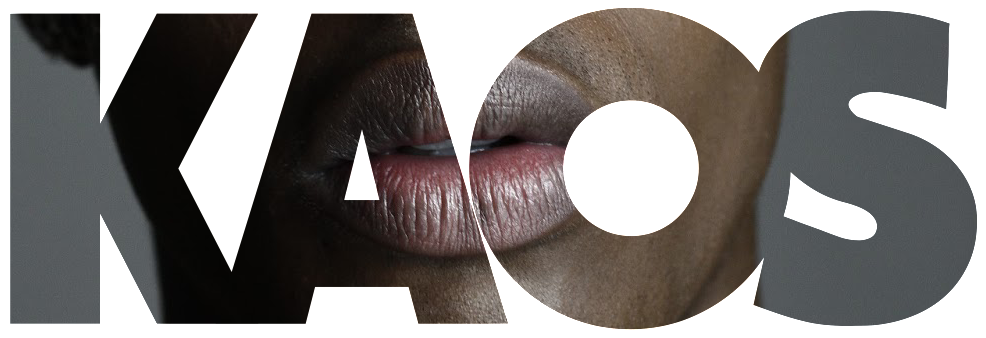















































.webp)
.webp)

.webp)

.webp)



















































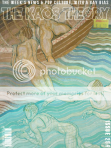























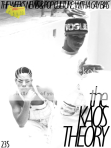
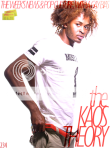



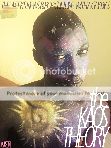


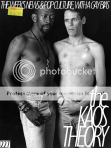









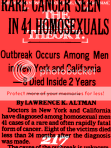
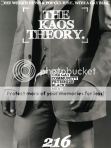


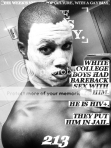








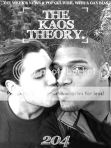

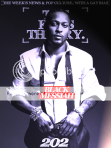
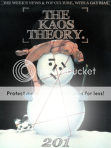

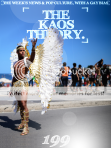
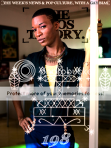

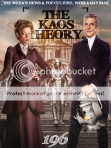
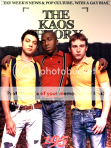










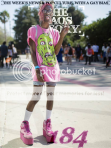




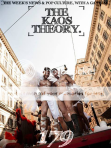




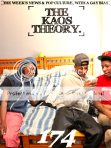
















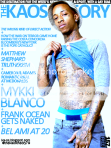



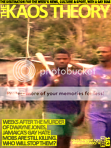

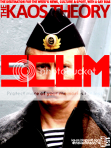




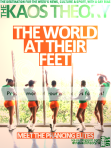






























































































































































0 comments:
Post a Comment